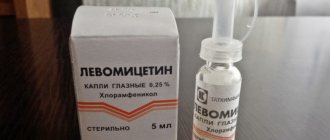The stereotype that you only need to take a small kitten into your home is becoming a thing of the past. People began to understand that taking an adult cat into the house is no worse. This choice has two important positive aspects: firstly, it is pleasant for the animal itself, and secondly, for the owner there are fewer surprises in its character. Veterinarians believe that a cat reaches full development by the age of 3 ; its social and physical properties are fully formed. And by this time, the animal has built its character and developed habits that remain with it until the end of its life.
Cat or kitten?
This question is individual for each case. Some are completely sure that you should only take a small one, while others, on the contrary, talk about the positive aspects of an adult animal. Everyone makes a choice, the main thing is that it is conscious.
If the future owner has a lot of free time, the choice may be made in favor of a small kitten. At the same time, the main thing to remember is that the baby requires a lot of attention, care and time.
People who are rarely at home, due to work or frequent business trips, should carefully weigh the pros and cons before getting a pet. In this case, it is recommended to choose an already formed animal for a friend and family member.
Grooming for a cat
Grooming is a set of measures to keep an animal clean and care for its fur, ears, claws and teeth.
When caring for a cat, we must not forget about its main decoration - fur! The fur of a healthy cat should be shiny, soft, and free of tangles.
Under normal conditions, a cat copes well with the task of caring for its coat on its own - there is no need to bathe it unless absolutely necessary.
However, it is still necessary to help the cat with combing! A short-haired Murka can be combed about once a week (more often - only in the summer, during periods of intense shedding), but cats of long-haired breeds (Persians, Angoras, Siberians, etc.) need frequent (ideally, daily!) combing !
Grooming dogs includes a haircut, but cats are cut only in extreme cases : for various skin diseases, or to cut off an advanced mat.
The fact is that after a haircut, a cat's fur may never be restored to its original length - the long, hard guard hairs that give the coat shine may not grow. However, for long-haired cats, it is recommended that a small area of hair around the anus to prevent excrement from being left on the fur.
Also, caring for an adult cat should include daily brushing of teeth with a special paste (it should be recommended by a veterinarian), weekly cleaning of the ears with cotton pads (never with water!!!), if necessary, wiping the corners of the eyes and the area around the mouth .
Is the cat from the street or a shelter?
Without a doubt, both options deserve some love . If a person decides to take into his home a mature cat, which he feeds on the street for several weeks, this does not mean that the pet wants the same. There are several cases in which this should not be done:
- The animal does not accept human affection, responding to it with a hiss.
- Small children or other animals live in the house.
- Veterinarians do not recommend taking home a cat that shows aggression.
As for shelter animals, you should take a closer look at them and ask the workers about their behavior. This is done in order to get to know the pet and make a decision on which its future life will depend.
Where is the best place to buy a kitten?
There are several ways to purchase a kitten:
- pet Shop,
- pet market,
- from a registered breeder,
- in the nursery,
- at a cat show,
- "buy second hand."
Pet shop and pet market
Pros of purchasing:
- Wide variety of breeds.
- Relatively low cost.
Disadvantages of the purchase:
- It is always better to observe the kitten before purchasing in the place where it was born and lived the first months of its life in the company of its mother. This provides information about the animal's health and temperament. Pet stores and pet markets do not provide this opportunity.
- Kittens of different litters can be kept in the same cage. This increases their vulnerability to infections.
- Not all stores and markets strictly adhere to sanitary standards. Keeping animals in unsanitary conditions undermines the health of animals.
- The kittens spend the whole day in cages, with many people passing by. At night they are left alone in the dark. This causes severe stress in the animals.
- Store and market sellers do not always vaccinate their animals or carry out antiparasitic treatment. They also do not always have information about the parents and documents confirming the breed.
- A kitten can live in a store for several months before being sold, this complicates its adaptation to a new family.
Buying “from hand”, according to an advertisement
Pros of purchasing:
- Low price.
- The ability to assess the conditions of detention once in the seller’s house.
Disadvantages of the purchase:
- There is a high probability of buying a mongrel kitten under the guise of a purebred one.
- Inability to confirm the breed with documents.
- It is impossible to determine the exact origin of the kitten.
Registered breeder, nursery
The best way to buy a purebred kitten is to go to a pedigree nursery or registered breeder. Conscientious breeders are responsible for the kittens they sell.
They are obliged to provide the buyer with the most detailed and reliable information and answer all questions. In addition, breeders must provide information support to the buyer during the first time after purchasing a kitten.
Pros of purchasing:
- True pedigree.
- Opportunity to meet parents and their documents.
- Healthier kittens.
Disadvantages of the purchase:
- High cost, justified by the above advantages.
How to check a breeder
A registered breeder is the best place to buy a purebred cat. But, you need to remember that there are both good and bad breeders. It is important to be able to distinguish one from the other. Next, we will tell you how to check the integrity of a cat breeder.
Conscientious breeder:
- Provides all comprehensive information about the object of sale and its parents in the ad. Posts a lot of photos of the litter.
- He doesn’t hide anything, doesn’t shy away from questions about the breed and specific animals. Knows the distinctive features of the breed, what birth defects it has.
- Encourages the buyer to meet the kittens several times before purchasing.
- Keeps the cat and its offspring clean and warm at home. Provides comfortable maintenance and proper care.
- Feeds animals with high-quality balanced nutrition. Doesn't skimp on the animals' diet.
- Insists on meeting the kitten's parents, gives all the information about the father and mother, and provides documents for them.
- Does not give away kittens until they reach 2-3 months of age.
- Vaccines kittens before transfer to a new home, carries out antiparasitic treatment, examines them at the veterinarian, and conducts genetic tests. Makes a veterinary passport with all the marks.
- Provides early socialization of kittens and tells buyers how this was done (adaptation to loud noises, meeting strangers and other pets).
- Registers kittens in breed clubs. Issues supporting documents to the buyer.
- Reputable breeders participate in cat shows and can confirm their participation with documents.
- Does not increase the price more than once a year.
- Provide information support to the buyer after the sale.
Unscrupulous breeder:
- Sells kittens that are under 2 months old.
- Does not have clear answers to questions about the breed being sold. Avoids them.
- Gets confused when answering questions about genetic breed defects and avoids answering.
- Breeds too many breeds and contains a large number of individuals in a limited space (overpopulation).
- He talks little about the kitten's character and boasts a lot about his titles.
- He speaks negatively about other breeders and does not recommend buying from competitors.
- Increases the cost due to the unusual color and non-standard size of the animal.
- He is not interested in where you are taking the kitten, or in what conditions you are going to keep it.
- After the sale, he does not maintain contact with the buyer, is not interested in the life of the kitten, and does not provide information support to the new owner.
- Frequent price changes and lack of price list are a sign of fraud.
- Doesn't register kittens, claims it's not necessary.
- Does not vaccinate kittens or carry out antiparasitic treatment.
Pros of an adult cat
There are quite a lot of positive aspects, it is recommended to familiarize yourself with them before making a decision:
- Character . When you get to know an animal, you can understand its character. In this case, surprises are excluded. If the cat is calm, then his character will not change, he will not become different. It is also possible to ask shelter workers or old owners about its habits and characteristics. The big plus is that the breeder has the opportunity to choose an animal just for him.
- Activity and silence . Middle-aged cats are not as active as toddlers. They don’t want to run around rooms and play all day long. This does not mean at all that they will refuse to play with their favorite toy, but it means that there will be less noise and troubles during the game due to his intelligence. After entering a new home, adaptation begins. At this time, noise is possible at night, but after getting used to the place, fermentation in the dark stops and silence sets in.
- Health . The chosen pet's health is clear. If there is any disease, the new owner will notice it or find out from the people with whom this pet lived, which cannot be said about kittens. No one can guarantee that they will grow up completely healthy, because a baby’s immunity is much weaker than that of an adult. What can affect various diseases in childhood.
- Attention . An adult animal is accustomed to doing without excessive human attention; it only needs about 30 minutes a day, unlike a small one, which needs constant education and care.
- Intelligence and understanding . Every year the cat gains intelligence and intelligence. He will easily understand his master. You can even say that after reaching 3 years of age, he acquires wisdom. The same cannot be said about growing kittens; they are more distracted and play-oriented.
- Socialization . The animal remembers the address for the rest of its life, then behaves the same way with others. If he was treated well, then affectionate behavior will be traced in him. The big advantage of adult animals is that when meeting them, you can find out how developed their social side is, how easily they make contact, what their attitude is towards children, etc.
- Tray . Probably one of the problems associated with many pets is toilet training. Adults usually have no problems with this; they are often accustomed to the tray or to another place. When choosing an adult pet, a person does not have to spend time learning.
- Gratitude . When the animal is already quite mature and has had to go through difficult situations. For example, the bad attitude of the old owners or life on the street. It will be endlessly grateful to its new owner for the house and good attitude towards him.
- Sterilization . Many owners are thinking about sterilizing their pets. The operation is not scary at all, it’s quick and it’s almost impossible to do anything wrong. The fear lies in the anesthesia. Each animal tolerates anesthesia in its own way, and no one can say what consequences it will suffer in this particular case. In order not to worry about the operation, it is possible to adopt an already sterilized animal from the shelter.
Who to choose: a kitten or an adult cat?
If you have already decided to have a cat in your house, think twice about who to take - a small kitten or an already adult and independent cat? At first glance, such a simple question is a real dilemma, because it depends on your decision whether the fate of your new family member will be happy or unhappy.
Little kittens evoke a lot of admiration from everyone and everyone, as one, wants to play with them, pamper them, tinker with them... But kittens are not toys and in fact are very fragile creatures that require love and constant affection. This is probably why in most cases people prefer adult cats, as they are less of a hassle.
It is not recommended to adopt small kittens for those people who spend almost 24 hours at work. A kitten, like a child, constantly needs to be fed, watered, taught to use a litter box, and generally raised. And if you dare to take your baby home and only come home to spend the night, your kitten will feel abandoned and unwanted.
An adult cat is already accustomed to living independently; in addition to all the advantages, she already knows that she needs to go to the litter box and how to entertain herself before the owner arrives. As you can see, an adult cat can be an ideal option for those people who have little free time, but have always dreamed of a cat.
It is not recommended for older people to adopt a small kitten. In fact, a kitten requires a lot of attention and causes a lot of different troubles. And in old age, the problems or issues that arise will not be so easy to solve. Moreover, do not forget that a kitten can cause a lot of minor damage: sharpening its claws on furniture, playing with balls of thread, jumping onto a table or windowsill and throwing off various objects, breaking them to smithereens.
It has been tested and proven that a cat over 10 years old is already mischievous; by taking such a pet into your home, you get a welcome friend without unnecessary problems.
A small kitten and your own child in tandem is incredible energy that brings parents a lot of frayed nerves. Your baby, being a toddler, does not understand at all how to handle a kitten, and this situation poses a danger to the life of the kitten itself. The furry friend most likely will not be able to stand up for himself, in turn, the child will one hundred percent try with all his might to reach for the animal to pull her by the soft fur coat.
If a child is 2-3 years old, he will definitely drag the kitten along with him, forcing him to play with him, either hide-and-seek or whatever. From such games, a kitten can become a psychologically frightened and unhappy animal, or, on the contrary, it can pour out aggression on your child: biting and scratching him, here the game will consist of: who will win...?
The entire complexity of the process of upbringing and responsibility for both the child and the kitten will fall on the shoulders of the parents. Think about it: do you have enough time and psychological strength for this? So it may be possible to take home an adult cat who will not allow herself to be tormented by a child and who knows not to bite or scratch. Adult cats understand a lot of things in our lives, what is possible and what is not.
The main reason for choosing a small kitten rather than an adult cat is its touching childlike appearance. It is also an indisputable fact that a well-mannered kitten from “diapers” will be much more devoted to its owner.
From the point of view of the touching appearance of a small fluffy, very mobile lump, you cannot dispute it. And when it comes to devotion, there is something to discuss here.
On the surface, your pet's devotion from a young age is wonderful. But on the other hand, just think how grateful adult cats and female cats can be, to whom you give a real home. Most likely, their love for you will know no bounds.
Do not forget that adult animals have already formed characters and, of course, a certain appearance. If you take a purebred kitten, then you will probably know how he will grow up in the future. As for the outbred kitten, there are only surprises waiting for you here and maybe not too pleasant ones...
In conclusion, I would like to say that it is much more difficult for adult cats to find a real home and a loving owner. Therefore, be sure that you will never regret your choice of an adult cat, because his love for you will be very wide.
The main thing in choosing a cat or kitten is attention and a serious approach. You must be guided not only by your desires, ambitions and whims, first of all you must think about the happy life of your new family member. Maximum comfort and warmth of your home is the key to a successful choice. After all, your pet’s life will depend on your choice, whether it will be unhappy or happy!
5 / 5 ( 2 voices)
Cons of an adult cat
Choosing an adult cat that is already fully formed has almost no disadvantages. After all, when choosing, everything that a breeder can expect is revealed. Something new is unlikely.
- Adaptation . A mature animal can take a long time to adapt to a new home and all its members. Sometimes this lasts up to 3 months. But there are cases when adaptation takes place very quickly, the animal understands and accepts all the rules of the new home.
- Getting used to new things . Adult animals do not always know how to do everything a new breeder needs. There are also cases where the animal suits all its habits and character, but is not taught, for example, how to drive a car. It will be a difficult challenge to accustom a mature animal to something new. But this is possible if you do everything gradually, unobtrusively. This, of course, is an advantage on the side of the kids. It is easier to instill skills in a child's return than to achieve this from a mature animal.











